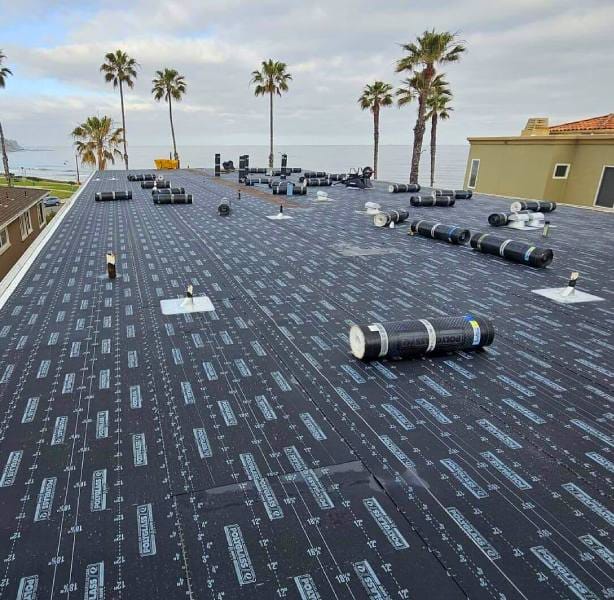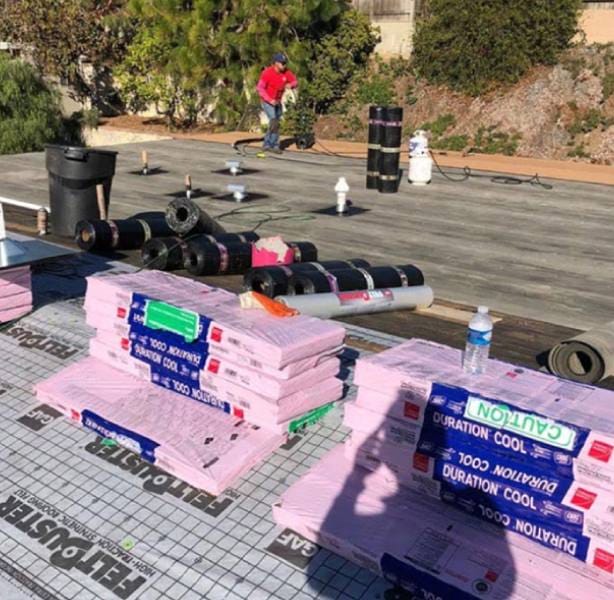Breaking Down the Costs: A Comprehensive Guide to Commercial Roofing Expenses
Introduction
When it comes to commercial roofing, understanding the costs involved can be a daunting task. Whether you're a property manager, business owner, or investor, knowing what factors influence roofing expenses is crucial for making informed decisions. In this comprehensive guide, we'll break down the costs associated with commercial roofing and provide you with insights into how to navigate this essential aspect of property management.
Table of Contents
Understanding Commercial Roofing
What is Commercial Roofing?
Commercial roofing refers to the various types of roofing systems designed specifically for commercial buildings, such as offices, warehouses, and retail spaces rather than residential properties like homes or apartments.
Types of Commercial Roofing Systems
There are several types of commercial roofing systems available:
- Flat Roofs: Often found on industrial buildings; they offer easy access for maintenance.
- Sloped Roofs: These roofs have angles that allow water drainage; popular in climates with heavy rainfall.
- Metal Roofs: Durable and energy-efficient options known for longevity.
- Single-Ply Membrane: Lightweight materials that are easy to install but may not last as long as others.
Benefits of Investing in Quality Commercial Roofing
Investing in quality commercial roofing has multiple benefits:
- Longevity: High-quality roofs can last decades.
- Energy Efficiency: Certain materials help reduce energy bills.
- Aesthetic Appeal: Good roofing can enhance your building's appearance.
Factors Influencing Commercial Roofing Costs
Material Selection
The choice of material significantly impacts overall costs:
- Asphalt Shingles: Economical but may require frequent replacement.
- TPO (Thermoplastic Olefin): Moderately priced; good energy efficiency.
- EPDM (Ethylene Propylene Diene Monomer): Generally more expensive but very durable.
Labor Costs
Labor costs can vary by region and complexity:
- Skilled labor often comes at a premium.
- If your roof requires specialized installation, expect higher labor fees.
Roof Size and Complexity
Larger or more complex roofs will naturally incur higher costs:
- The square footage directly affects material needs.
| Aspect | Small Roof | Medium Roof | Large Roof | |-----------------|------------|-------------|------------| | Estimated Cost | $5,000 | $10,000 | $20,000 |
Geographic Location
Where your building is located plays a role in cost:


- Urban areas may have higher labor rates than rural regions.
Additional Features and Customization
Custom elements like skylights or solar panels add to the expense but can increase functionality or aesthetics.
Breaking Down the Costs: A Comprehensive Guide to Commercial Roofing Expenses
Average Cost Estimates for Different Materials
Here’s a quick breakdown of average costs per square foot based on material type:
| Material Type | Average Cost ($/sq ft) | |----------------------|-------------------------| | Asphalt Shingle | $3 - $5 | | Metal | $7 - $12 | | TPO | $5 - $10 | | EPDM | $4 - $8 |
These estimates provide a general guideline but keep in mind that actual prices can fluctuate based on various factors including local market conditions.
Cost Comparisons: Flat vs Sloped Roofs
Flat roofs tend to be less expensive initially due to lower material usage but might incur higher long-term maintenance costs compared to sloped roofs which are often more expensive upfront due to their design complexity.
Hidden Costs in Commercial Roofing Projects
Maintenance and Repair Expenses
Neglecting regular maintenance can lead to costly repairs down the line:
- Annual inspections are essential to identify potential issues before they escalate.
Permitting and Inspection Fees
Don’t forget about permits! Depending on your area, you may need specific permits which could add unexpected expenses.
Choosing the Right Commercial Roofing Contractor
What to Look for in a Contractor?
Finding the right contractor is crucial:
- Check credentials, experience level, and customer reviews before signing any contracts.
Questions to Ask Your Contractor
Before hiring anyone, consider asking these questions:
Financing Options for Commercial Roofing
Traditional Financing Methods
Many businesses opt for loans or lines of credit when financing their roof projects—make sure you shop around for competitive rates!
Leasing vs Buying a Roof System
Leasing might be appealing if you're looking to conserve cash flow while buying often provides long-term benefits if you're planning on staying put.
Maintaining Your Commercial Roof
Importance of Regular Inspections
Regular inspections help catch small problems before they turn into major headaches—consider scheduling these annually or bi-annually!
Tips for Extending Roof Lifespan
Here are some tips that can extend the life expectancy of your roof:
- Remove debris regularly.
- Keep gutters clear.
- Address minor issues immediately before they worsen.
FAQs About Commercial Roofing Expenses
Q1: What’s the average lifespan of a commercial roof?
A: Generally speaking, most commercial roofs last between 15 to 50 years depending on materials used and maintenance practices followed.
Q2: How much should I budget annually for roof maintenance?
A: It's wise to set aside about 1%–3% of your property's value each year for maintenance efforts.
Q3: Are reputable commercial roofers nearby there tax deductions available with new roofing?
A: Yes! In many cases, businesses can deduct certain expenses related to roof upgrades on their taxes—consult your accountant!
Q4: Will my insurance cover roof repairs?
A: It typically depends on your policy; check with your insurance provider regarding coverage specifics related to repairs due damage from weather or age-related wear-and-tear.
Q5: How do I know when it’s time for a new roof?
A: Signs include leaks during rainstorms, visible sagging areas, or extensive wear evident upon inspection—consulting with an experienced commercial roofing contractor could save you from costly surprises!
Q6: Can I DIY my commercial roofing repairs?

Conclusion
In summary, understanding the costs associated with commercial roofing is vital whether you're managing properties or running a business yourself! By breaking down these expenses into manageable components—including materials selection down through contractor choices—you'll be better equipped at navigating this complex field successfully! Remember that investing wisely upfront tends pays dividends later by reducing overall lifetime costs while ensuring lasting protection over time! So take your time… do your research… consult professionals—and safeguard one of your most significant investments today!